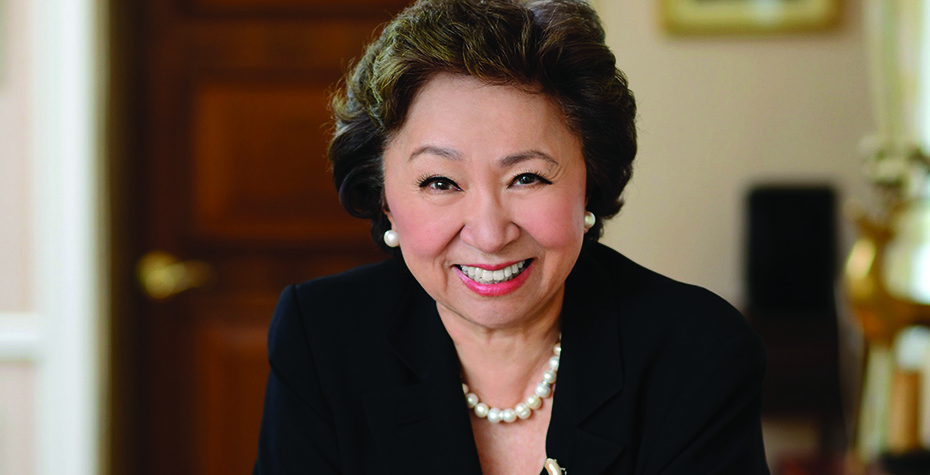Former Corporate VP of GM and Leader of Influential Chinese-American Organization Is a Strong Voice for Educating Women for Leadership

Shirley Young ’55 has been making frequent trips between China and the United States for the past four decades, drawn by family ties and by her mission to increase cultural exchange between the two countries.
Young leads the Committee of 100, an independent nonprofit group of prominent Chinese-Americans based in New York, which aims to “encourage a stronger relationship between the people of the United States and China, and the full participation of Chinese-Americans in all aspects of American life.” The committee consists of more than 160 prominent Chinese-Americans including cellist Yo-Yo Ma, architect I. M. Pei, former American Secretary of Labor Elaine Chao, and figure skater Michelle Kwan.
Before her most recent visit to China this year, in an interview with China Daily titled “Girls Should Dream Big, Too,” Young discussed her work and her goal to encourage leadership qualities among the young, especially women. Earlier this year, she was in Beijing for the launch of Wellesley's Women World Partners. Young, a former Wellesley College trustee, was a driving force in the creation and launch of that initiative.
"The notion of leadership is not very clearly and openly rooted in ladies at a very early age for most females around the globe, including China," Young told China Daily. "Girls are usually taught to have good academic performance at an early age, especially in China," she continued. "The leadership education is lacking in basic education of China.”
Young also recently sat down with WeTalk, a SINOVISION English program, to discuss Women World Partners.
“If you look at the statistics, even today in China, 50 percent of the students at the highest level are women. Which means the country is investing a lot to train women for greater contributions to society,” Young told WeTalk. “But if you look at the statistics of their participation in society in leading roles—not just in politics and business but also in medicine and media and arts—the numbers shrink down to around 20 percent. There’s a big gap of underutilized resources.”
Watch the interview on WeTalk’s YouTube Channel.
